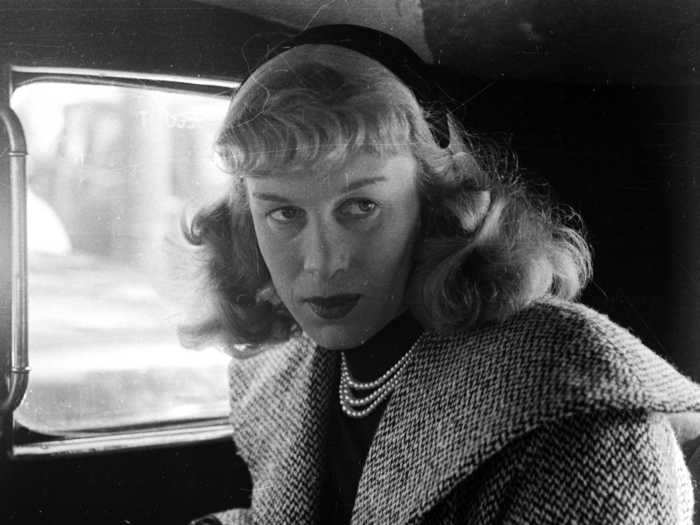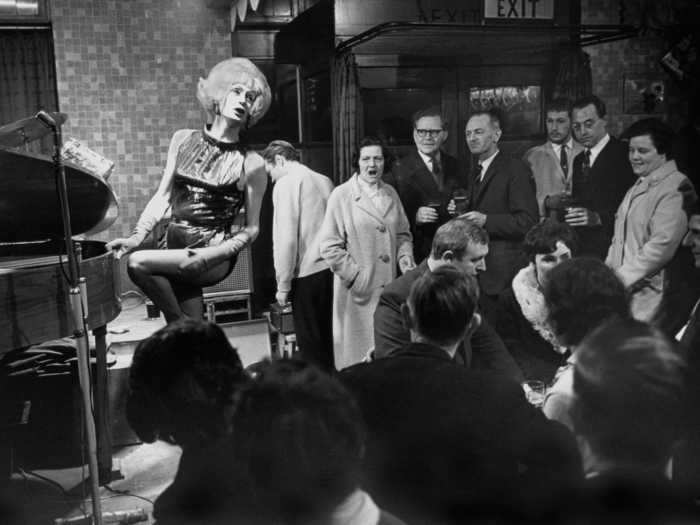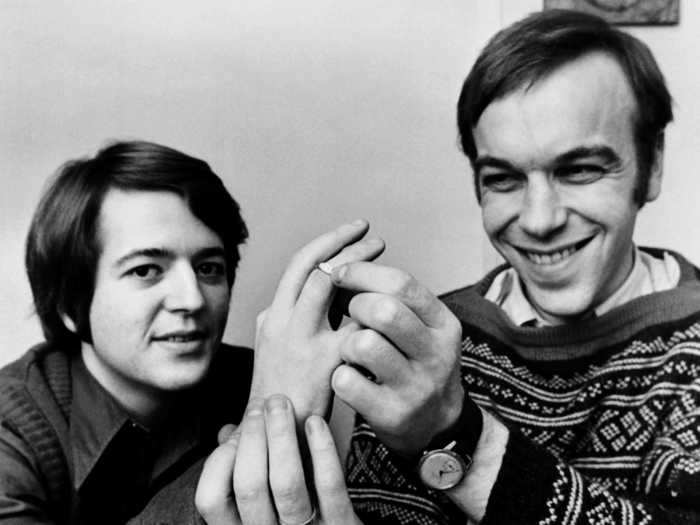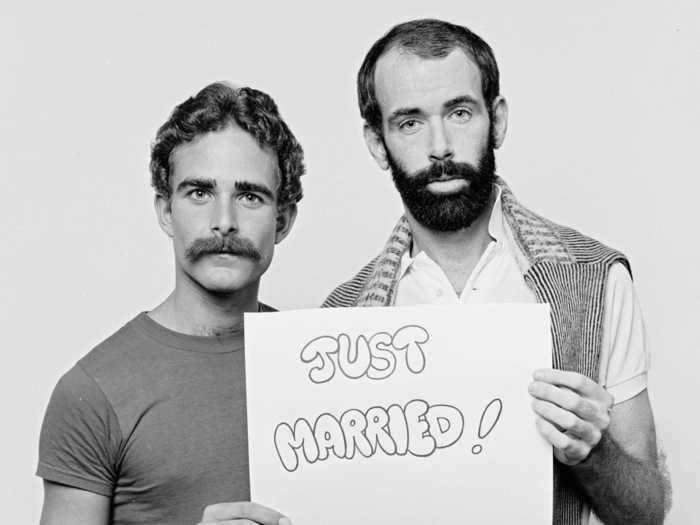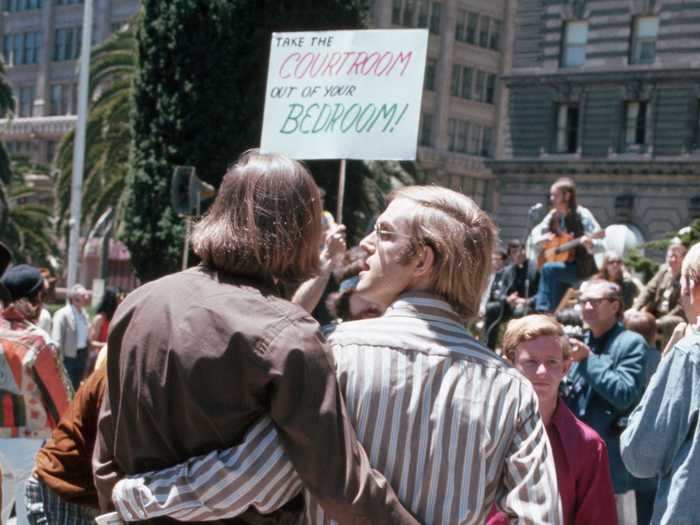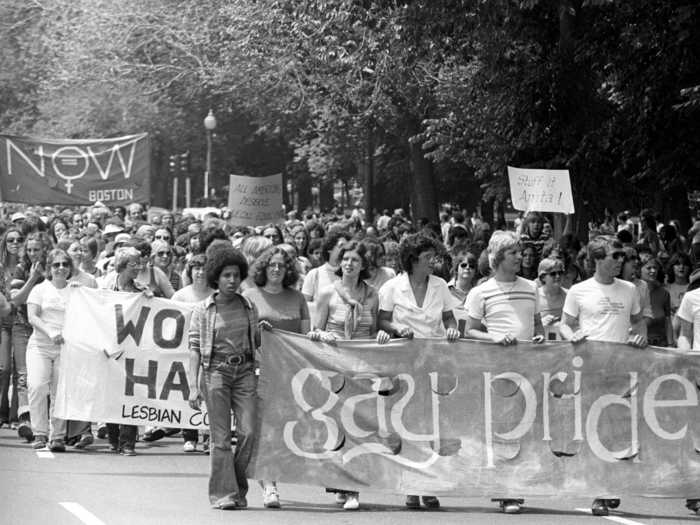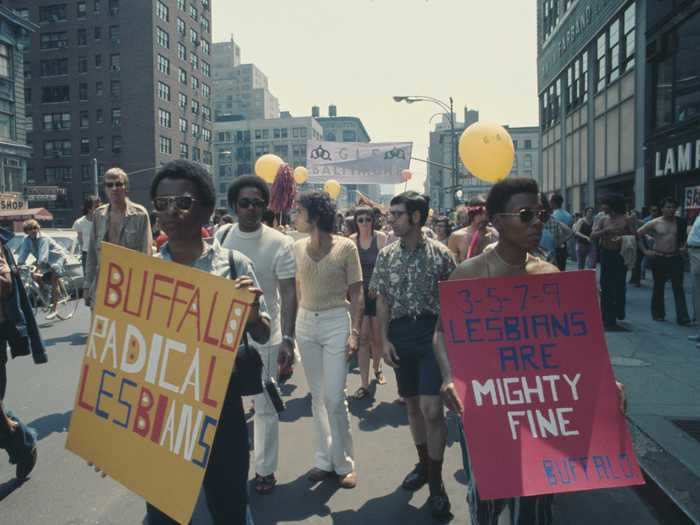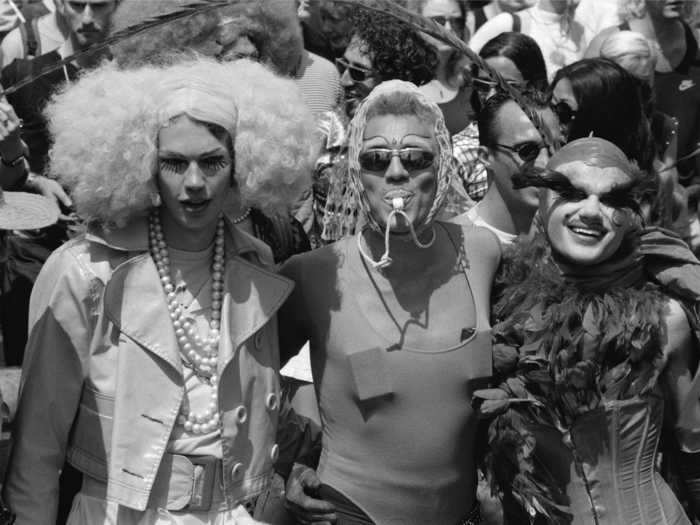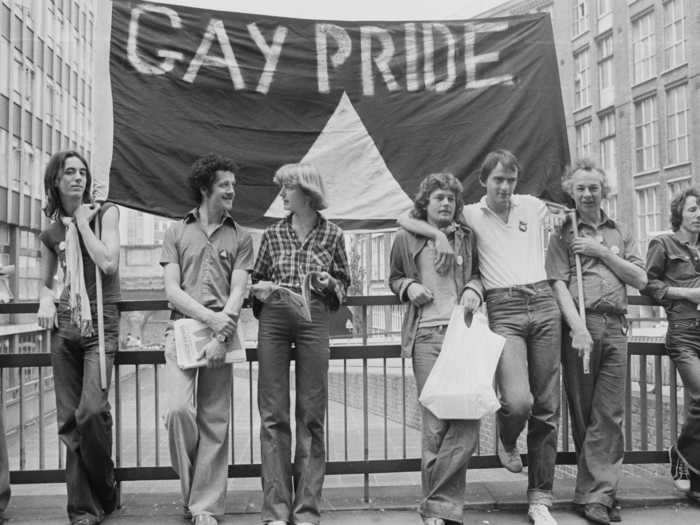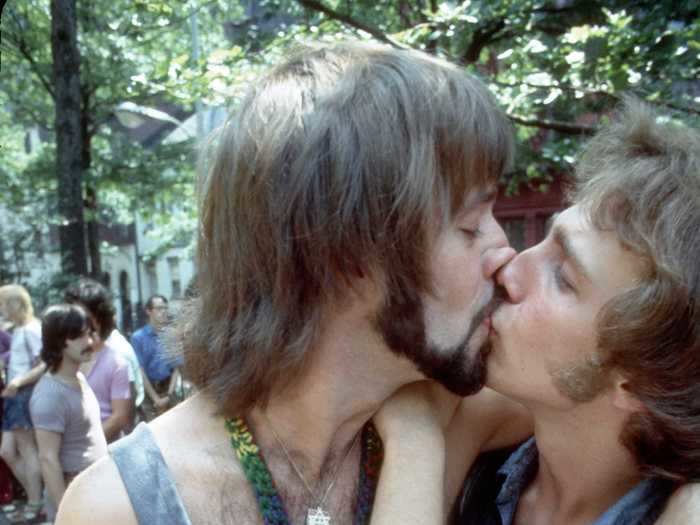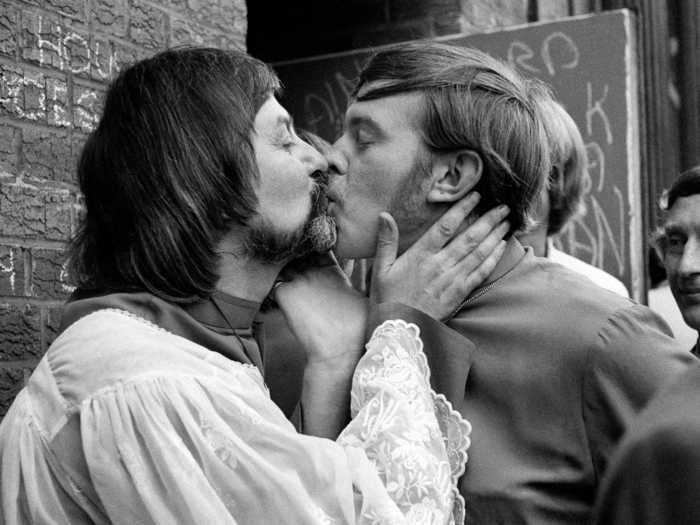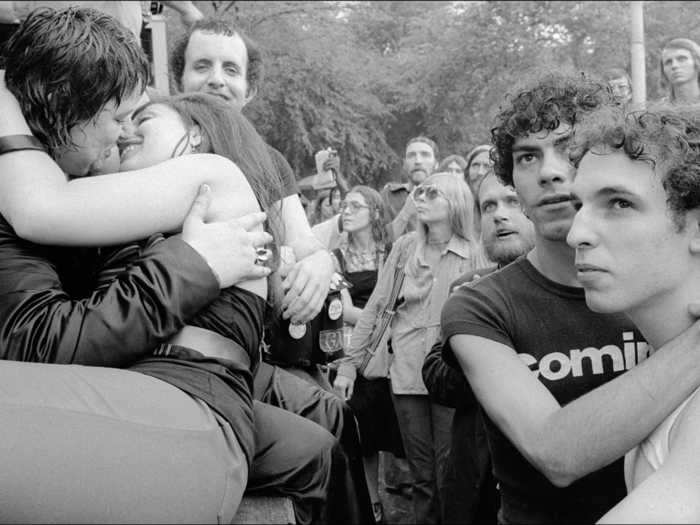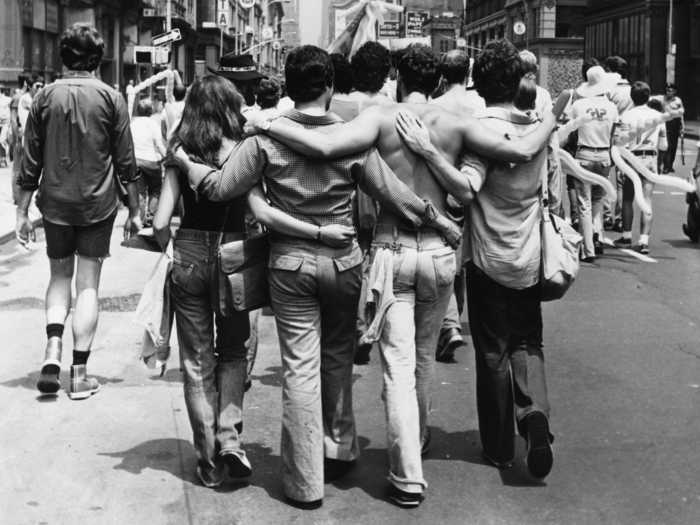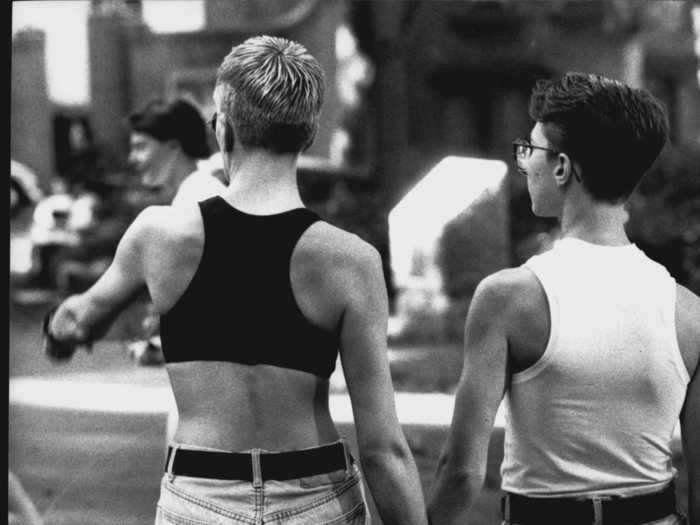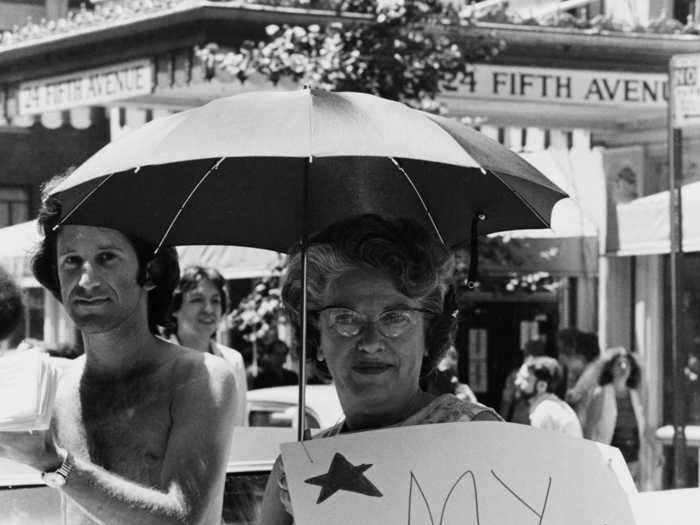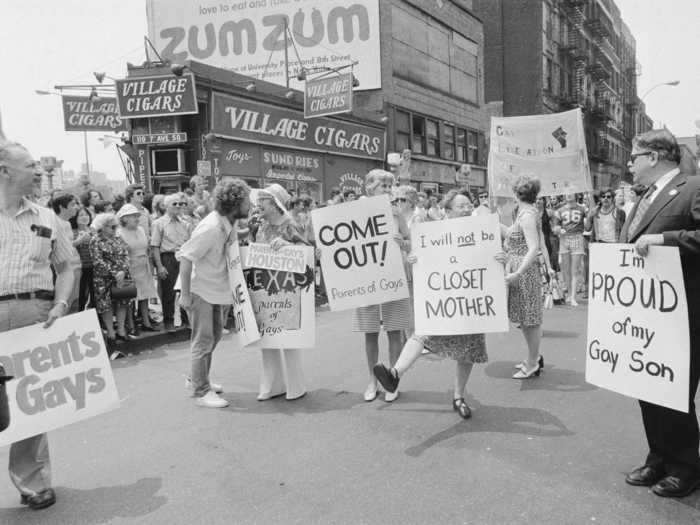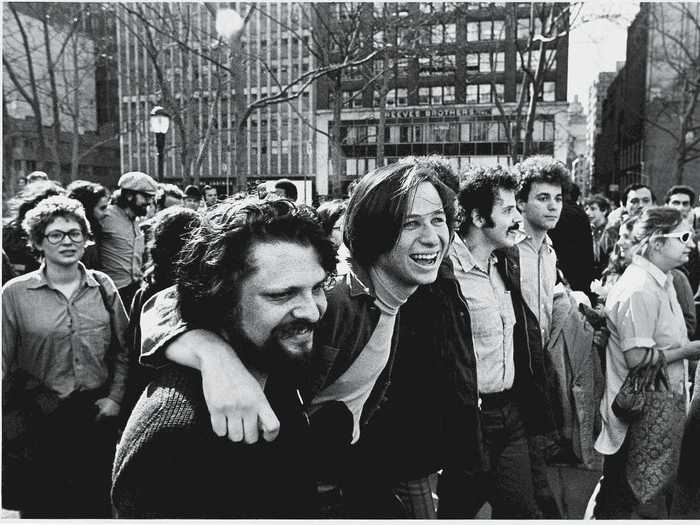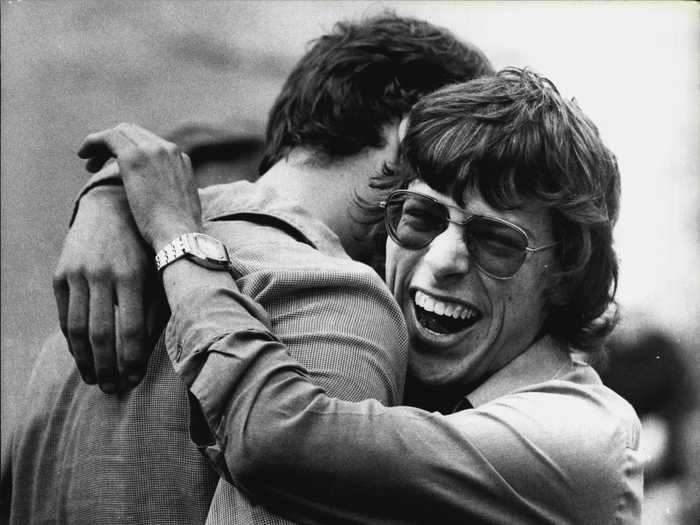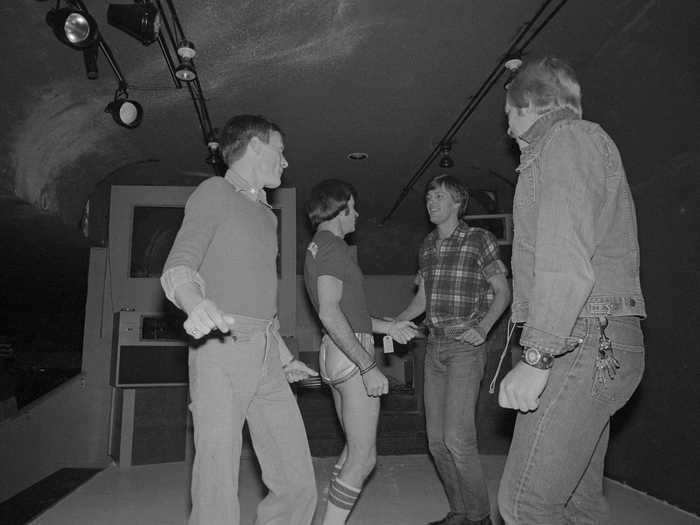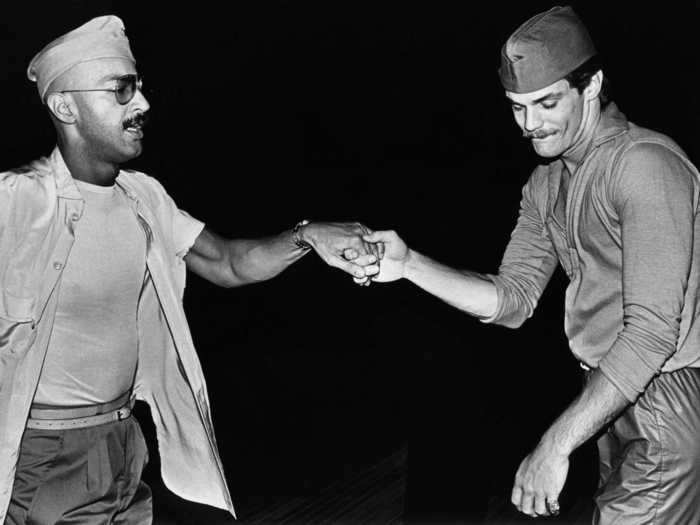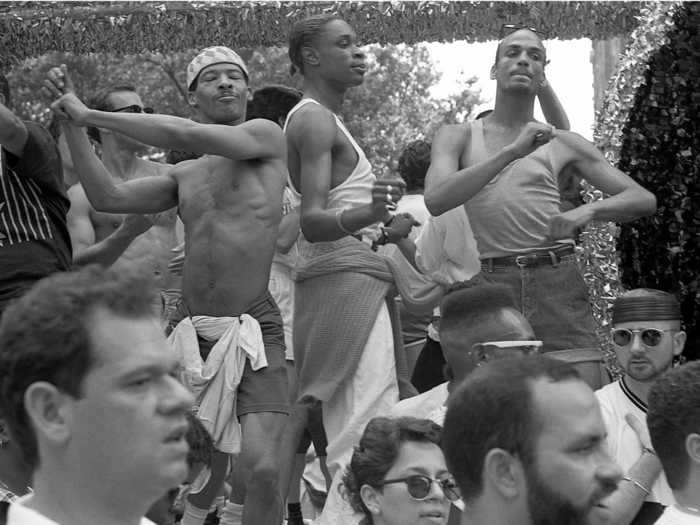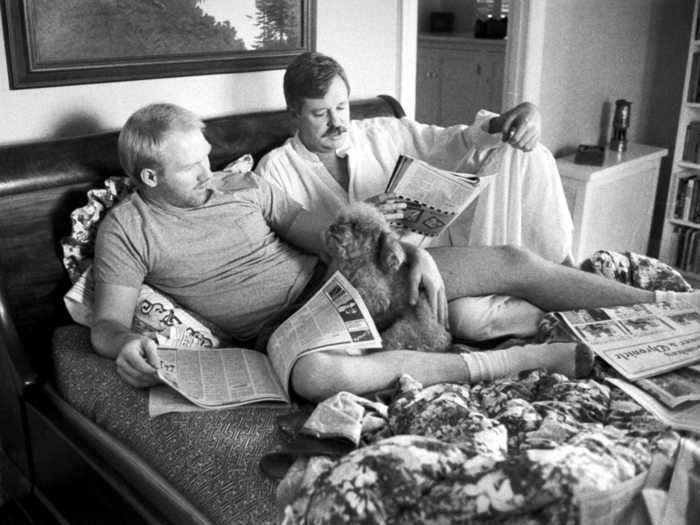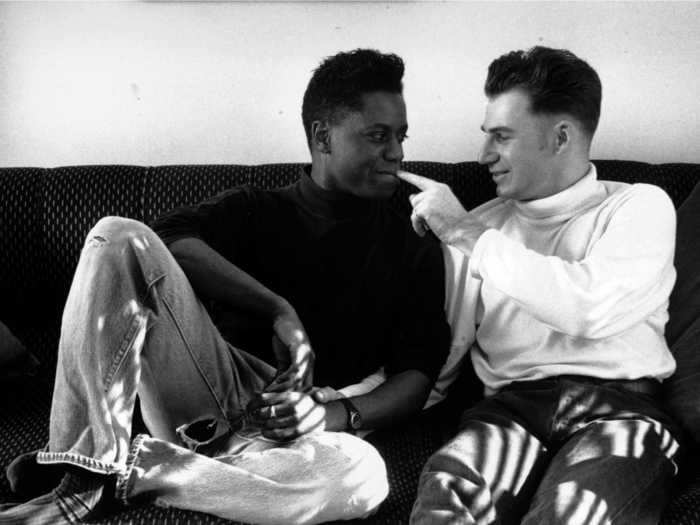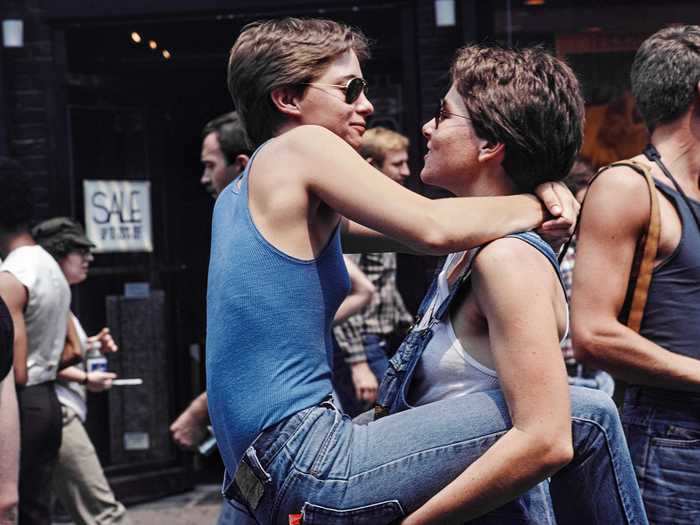The LGBTQ community celebrates every year at gay pride marches.Spencer Grant/ Getty
- Throughout history, the LGBT community has had inspirational moments that were captured on camera.
- Photos of people kissing, hugging, and holding hands at gay pride marches in the '70s show the community celebrating love and acceptance.
- Meanwhile, drag queens, Roberta Cowell, and Armistead Maupin are among the figures that inspired the generations that followed.
Throughout the 20th century, the LGBTQ community has come out of the shadows and fought for their rights. Luckily, some of the biggest moments were captured on camera to inspire millions.
From the drag queens in the '60s to the gay pride marches in the '70s, these are some of the most inspirational moments captured in LGBTQ history.
The LGBTQ community has a long, inspirational history. Roberta Cowell, for example, made headlines in 1954 after becoming the first transgender person to undergo sex reassignment surgery in England, inspiring those who came after her.
Roberta Cowell.
Maurice Ambler/ Getty
Although drag queens have broken into mainstream culture today, they have been around for generations.
A drag queen in 1966.
ullstein bild/ Getty
Here, a drag queen entertains guests in 1966.
Although same-sex marriage wasn't yet legalized, that didn't stop LGBTQ couples from tying the knot at special ceremonies.
Engaged couple in 1971.
ullstein bild / Getty
An engaged couple is pictured in 1971.
In 1976, this gay couple celebrated their new union.
Newlyweds in 1976.
Jack Mitchell/ Getty
Massachusetts became the first state to legalize same-sex marriage following a ruling in 2003.
Throughout the 1960s and '70s, LGBTQ people held rallies in San Francisco.
A couple in the 1960s.
Ted Streshinsky Photographic Archive/ Getty
They demonstrated the power of the community.
After the Stonewall Riots in New York City, people celebrated with gay pride marches in the 1970s.
Gay pride in 1970.
Spencer Grant/ Getty
Pictured, people take to the streets in 1970.
In 1971, the streets were filled with a diverse group of people celebrating the LGBTQ community.
Gay pride in 1971.
Michael Ochs Archives/ Getty
Pictured, people take part in a gay pride march in 1971.
Gay pride marches across the country quickly became a celebration that welcomed people of any color, religion, or sexual orientation.
Gay pride.
Barbara Alper/ Getty
Members of the Jewish community pose for a photo at gay pride.
The parade was also a time to celebrate gender — and blurring the lines of gender expression.
Gay pride.
Steve Eason/ Getty
Gay pride wasn't only held in the US, however.
London.
Evening Standard/ Getty
London held its own march for the LGBTQ community in 1977.
The New York City Pride March dates back 50 years. This couple celebrated the 1971 parade with a kiss.
A couple in 1971.
Michael Ochs Archives/ Getty
Throughout LGBTQ history, kissing has been a sign of love between friends, partners, and lovers.
Couple kissing.
Ron Frehm/ AP
A couple is pictured kissing in 1971.
Similarly, in 1975, LGBTQ couples celebrated their love at the pride parade in New York's Central Park.
Couples at gay pride.
Allan Tannenbaum/ Getty
That same year, members of the LGBTQ community embraced each other along the parade route in New York.
Pride march in New York City.
Peter Keegan/ Getty
Some held hands while strolling through the parade streets.
A couple at a lesbian march.
Fairfax Media Archives/ Getty
It was even common for parents of LGBTQ children to come out to the parade to support their children and show love.
A mother at gay pride.
FPG/ Getty
This mom's sign reads, "My gay son is the greatest."
Here in 1974, fathers and mothers walked alongside their LGBTQ children at the parade in New York City.
Parents at gay pride.
Bettmann/ Getty
Their signs express their pride for their children.
Pictures from these events show how the marches were a celebration of love, companionship, and acceptance.
Pride march.
David Fenton/ Getty
Friends celebrate together.
But these moments of queer celebration weren't just saved for marches.
A couple in 1981.
Fairfax Media Archives/ Getty
In 1981, this couple was caught in a blissful embrace.
Gay bars and clubs were also a safe haven for the LGBTQ community.
Gay club in 1977.
Bettmann / Getty
Here, four gay men dance in a San Francisco club in 1977.
Whether at a bar or a club, dancing has always been a major form of expression in the LGBTQ community.
Dancing.
George Rose/ Getty
Dancing at marches was also common.
Dancing in 1989.
Scott McPartland/ Getty
Here, a group dances in 1989.
The community was also captured during intimate moments at home.
Armistead Maupin and his lover.
Kim Komenich/ Getty
In 1989, for example, writer Armistead Maupin was photographed with his lover, who was living with AIDS.
That same year, a photographer captured this tender moment between two men.
A couple in the '80s.
Leon Morris/ Getty
They are pictured in 1989.
From marches to gay bars and public displays of affection, the history of the LGBTQ community has given strength and inspiration to the generations that followed.
Gay pride.
Barbara Alper/ Getty

